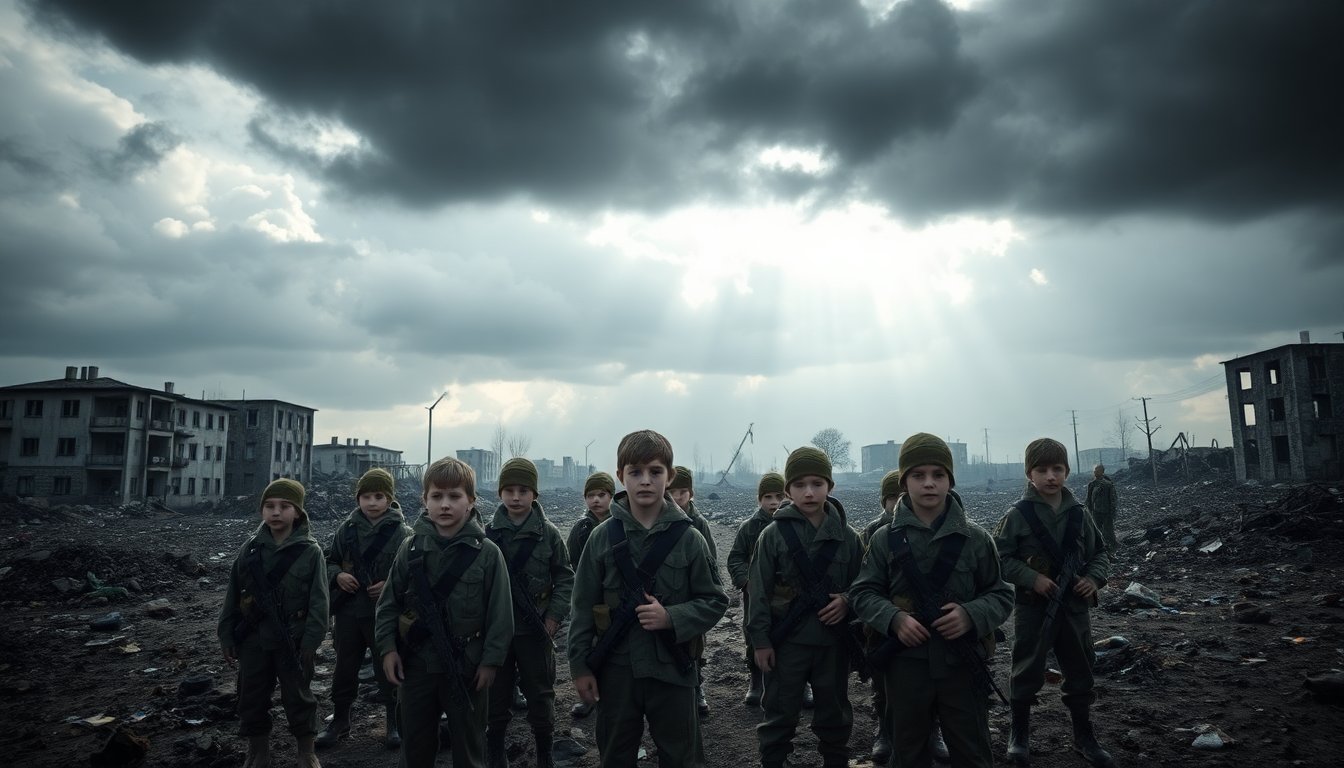Table of Contents
In the context of the ongoing conflict in Ukraine, a troubling reality emerges for many vulnerable orphans from Russia. Thousands of these young individuals have been coerced into military service, often driven by the hope of securing housing to which they are already entitled. This exploitation highlights a harrowing cycle of manipulation and loss.
Reports from various outlets, including RFE/RL’s Sibir.Realii, paint a grim picture, revealing at least 190 obituaries of orphans killed in combat over recent years. Conversations with those who knew these young men expose the harsh circumstances that led them to the battlefield, shedding light on the systemic issues at play.
The tragic case of Danil Trubeyev
One poignant example is the story of Danil Trubeyev, a 20-year-old orphan from Miass, whose life was tragically cut short in the war. Danil’s military journey began under the promise of safety and stability. After being captured in October, he returned home briefly in April, only to confront the grim reality of his situation—he was denied leave and soon found himself back in combat.
The challenges faced by orphans
Those close to Danil described how the hardships of growing up as an orphan contributed to his decision to enlist. His teachers and relatives noted that the lack of critical thinking skills and a pervasive sense of despair in orphanages often leave these young individuals vulnerable to manipulation. As one teacher remarked, “These children are brainwashed, learning only basic survival skills while being deprived of a stable emotional foundation.”
Danil’s childhood was marked by trauma—his mother’s death by suicide and his father’s abandonment led to his placement in an orphanage. This environment perpetuated a cycle of hopelessness, making military service appear to be a viable option for many.
The lure of military service
In June, Russian authorities introduced policies that offered orphans who enlisted in the military priority access to government housing. This incentive has been exploited to recruit young adults who see no other path to stability. However, the harsh truth is that many do not survive long enough to claim the promised housing, leaving behind dependents who often face denial of the benefits they were promised.
Exploitation through recruitment tactics
Recruitment officers frequently visit orphanages, promoting enlistment as a path to a better life. They depict military life as substantially different from the brutal realities of war. Many orphans fall for misleading claims that they would serve in non-combat roles, often leading to tragic outcomes. “They told me I would be safe, working at headquarters,” Danil reportedly said before his deployment, highlighting the disconnect between expectations and reality.
The systemic issues within orphanages worsen these problems. Staff members at these institutions report that many graduates enlist not out of desire, but because they feel they have no other choice. They witness peers signing contracts and fear being left behind, a sentiment echoed by many former orphans grappling with housing insecurity.
The broader implications
As of September, Russia’s Investigative Committee indicated that approximately 184,000 orphanage graduates are awaiting government housing. This backlog reflects a systemic failure to provide for those in need, while policies favoring military recruits further underscore the injustices faced by orphans. Critics argue that authorities should be held accountable for the dire living conditions and inadequate support provided to these individuals.
Many former wards of the state and their advocates have expressed outrage over the preferential treatment given to those who enlist. A woman from Chita voiced her frustration, stating, “Why do military participants receive housing priority while others are left to fend for themselves?” Her sentiments resonate widely, as many believe that orphans deserve better treatment without being coerced into conflict.
Reports from various outlets, including RFE/RL’s Sibir.Realii, paint a grim picture, revealing at least 190 obituaries of orphans killed in combat over recent years. Conversations with those who knew these young men expose the harsh circumstances that led them to the battlefield, shedding light on the systemic issues at play.0


